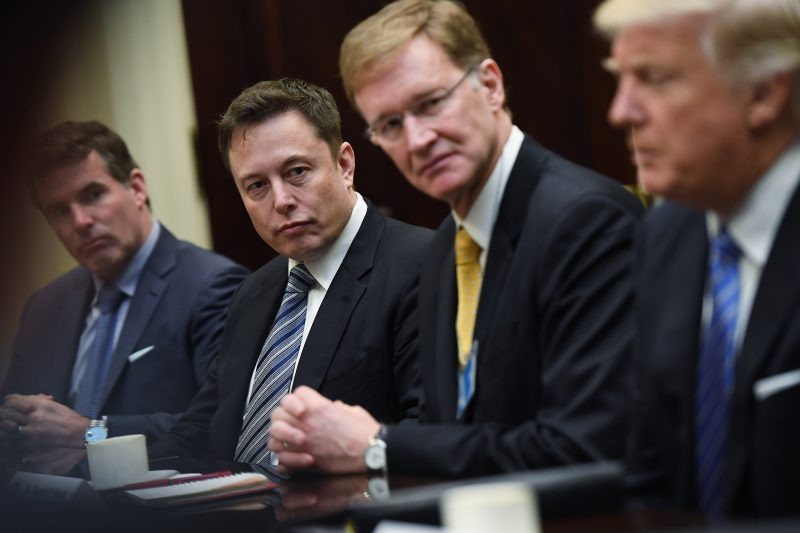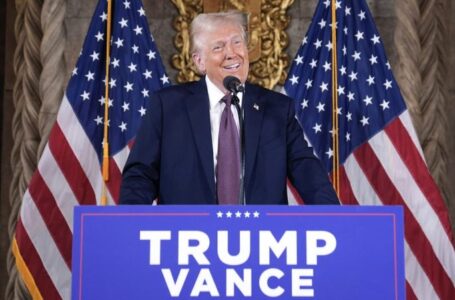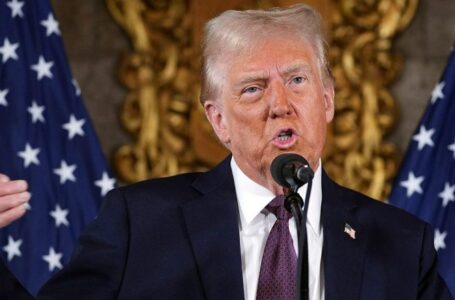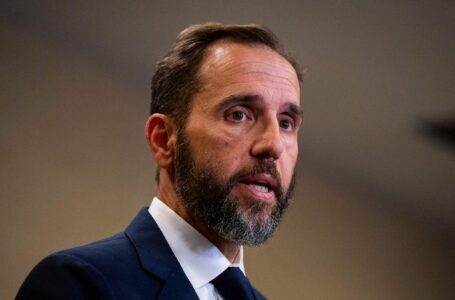Philippines’ Black Nazarene procession draws hundreds of thousands of devotees
It’s not money that Elon Musk is contributing to Donald Trump


News that Elon Musk met with Donald Trump over the weekend prompted not gasps of surprise but, instead, the sort of “oh, sure, of course” response that comes from figuring out a mystery story written for children. Naturally, Trump and Musk are sitting down. They are fundamentally the same character, with Musk trailing Trump’s evolution from business guy to right-wing political actor by about a decade.
Not to mention that Musk has two things that Trump very much wants: money and a slice of the national conversation. The New York Times’s original report about the meeting focused on the mechanics of the former, on whether Trump would get Musk to contribute to his campaign, super PAC, legal bills or whatever. But it is the other asset that Musk might provide that’s more interesting and more attainable.
Musk has already ruled out contributing to Trump’s campaign, writing on his social media site, X, that he was “not donating money to either candidate for US President.” There was little question that he was about to donate to President Biden, someone who on Tuesday he alleged had committed “treason” because … the president implemented a plan he announced in early 2023. And it’s very much in keeping with Musk’s uncomplicated persona that he would preemptively rule out aid to Trump.
Let’s say that all Musk had to offer was money. The worst way for Trump to secure it would be to sit Musk down and try to woo him, to bring him into the fold.
Musk, as has been robustly demonstrated very publicly over the past 16 months or so, insists upon convincing himself that he has discovered the answers on which he eventually lands. He is the archetype of the guy who “does his own research,” meaning he is the archetype of the guy who seizes on contrarian arguments that others have put forward. The 2024 Republican candidate who manifested this energy — an energy that is inseparable from hyperattentiveness to the online conversation — was Vivek Ramaswamy. And, true to form, Musk repeatedly expressed approval of Ramaswamy’s candidacy.
Musk doesn’t want Trump to be able to say that the Tesla CEO is on his team. Musk wants to be able to frame Trump as being on his. Just as he was able to get Florida Gov. Ron DeSantis (R) to announce his presidential candidacy on X or Twitter or whatever it was called in May. Just like Musk similarly played host to Ramaswamy in an online conversation (with not-terribly-helpful results). Musk wants to be in a position of power, and he seems dissatisfied with the power that comes from having lots of money.
None of this (including his social media post) means that Musk won’t eventually donate to Trump. It just means that straight-up asking probably isn’t the play.
Nor does this mean that Musk won’t contribute to Trump in other ways. In fact, he contributes on a daily basis, amplifying fringe-right rhetoric about immigration that makes Trump’s stated positions seem less extreme and that propagate out to millions of X users.
On Feb. 2, for example, Musk claimed that Biden was “encouraging” illegal immigration so that he could “[l]egalize them to create a permanent majority” of Democratic voters. It is an explicit articulation of the “great replacement theory,” and one that bears no relationship to reality.
The research he’d conducted to demonstrate that this was Biden’s plan included an image of an Associated Press article headlined “Biden to prioritize legal status for millions of immigrants.” This was not a recent article but one from the transition period before Biden took office. The article reported that Biden would introduce legislation on his first day in office that provided a path to citizenship. And he did. And it went nowhere. And that was that. But here comes Elon Musk, perpetually incensed by hyperbolic or false claims about immigrants arriving in the United States, picking up this three-year-old story.
His post has been viewed 48 million times, according to X’s dubious metrics. It has been reposted 76,000 times. Maybe Biden should have just included Tesla in his electric-vehicle summit.
Musk purchased then-Twitter in part because, he argued, he opposed the social media platform’s approach to moderating content. Like many on the right, he conflated rules limiting toxic behavior and misinformation with limits on right-wing speech. Musk insisted that Twitter should become a “free speech” zone, by which he didn’t really mean that anyone could say anything so much as he meant that his viewpoints and the viewpoints of his ideological allies should be unfettered. This overlaps almost entirely with the “do your own research” worldview, in which even wrong or harmful arguments must necessarily be granted oxygen.
And why were those rules in place? Largely because, in 2016, the tactic of using the internet to bully and harass ideological opponents spilled over into social media in force. Those voices were often right-wing and heavily pro-Trump. Twitter, at that point, became a way for pro-Trump voices to organize, coordinate and engage in unified action. Twitter implemented controls, and then Musk lifted those controls. The benefits to Trump are apparent. DeSantis’s presidential campaign hoped to leverage the positive sentiment he had earned from voices on the right when he sought reelection as governor in 2022. But he quickly ran into the established, potent, pro-Trump buzz saw that existed in right-wing social media.
Trump, facing legal bills, legal penalties, campaign costs and who knows what else, could use some cash. Extracting $3,300 from Musk wouldn’t do much to fill that hole and would require a careful appeal to the businessman. But Musk is already contributing far more than $3,300 in value to Trump’s campaign by spreading extreme right-wing rhetoric that reinforces Trump’s political arguments.
Intentionally or not, Musk is actively engaged in organizing in support of Trump on his platform of hundreds of millions of users. Any monetary donation is icing on the cake.











